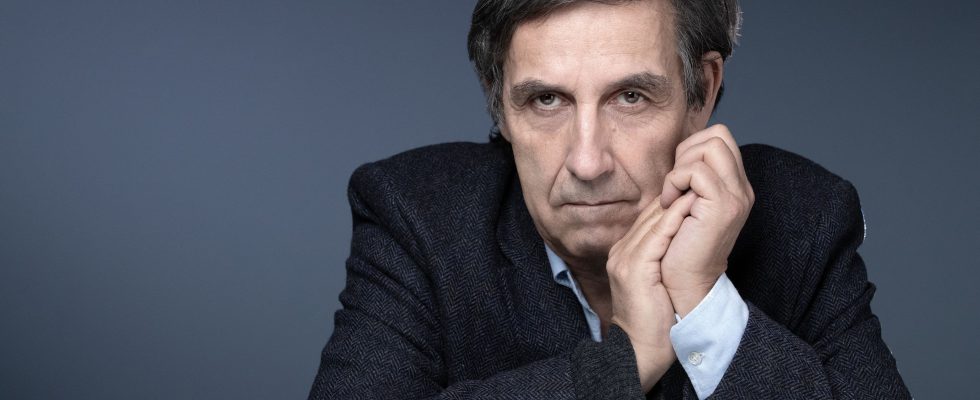In There Defeat of the West (Gallimard), the one who predicted, for the wrong reasons, the fall of the USSR offers a new prophecy that he thinks goes against the grain: the West will die and Russia has already triumphed. Obviously, everyone is free to take their dreams as realities, provided they are not presented as scientific work. And that’s the problem with this essay. Because Emmanuel Todd may remind in each interview that he is a statistician, disciple of the Annales school, historian and geographer, his work remains that of an ideologue who desperately tries to bend the facts to his desires. His method is as follows: start from false premises to deduce a fallacious hypothesis, manipulate the data so that they confirm his initial bias and conclude that science agrees with his ideology.
From the first lines, Todd explains that as a good Weberian, he considers that the prosperity of the West lies entirely in the existence and persistence of Protestantism. However, he observes a fall in Protestant marriages and rituals in the West and particularly in the United States. Consequence: the Western breath has disappeared. We could stop there, as the argument is enough to make any sociologist or anthropologist smile with a minimum of intellectual honesty. No researcher could admit that a phenomenon such as the prosperity or stability of a society is not the result of a single variable. Especially since research into the causes and origins of Western wealth has been the subject of a significant number of leading academic works. Becker and Woessmann showed, from 2009, that education for all, dear to Protestants, had played a major role in the development of Europe and the United States. In Why Nations FailAcemoglu and Robinson observe that the fundamental determinants of prosperity are legal stability, the presence of the rule of law – rule of law – and the existence of economic institutions favoring competition. And several historians attach great importance to the emergence of bourgeois values, whose roots are multifactorial (McCloskey) and undoubtedly accidental (Davies). More importantly, Friedrich Hayek explained that a society’s prosperity and dynamism were greater if its members shared values and habits whose purpose they had forgotten. Therefore, the disappearance of Protestant rituals cannot be an indicator of any decadence. According to academic work, a scientific analysis of the evolution of societies should be based more on the level of education, legal and political stability, the existence of a rule of law and the solidity of democracy.
The world culture is that of the United States
The reason why Todd refuses to consider this work is obvious: it shows the strength of the West and, within it, the resilience of the United States. Might as well hide the truth. Except that, to assert that the United States is getting poorer, the author cannot avoid constructing an indicator of national wealth. Since GDP per capita does not confirm his thesis, he invents a new one, Real Domestic Product. We then move from sophistry to pure and simple delusion. As a pseudo-Marxist who considers that only material production has value, Todd decides to drastically reduce the weight of services in American GDP. Healing, educating, training, all of this has no value, any more than defending the rights of citizens. No, what matters is the production of steel and bolts. It sounds like Ceausescu was trying in vain to buy European planes with scrap metal. To support his thesis, Todd cites American health spending, which is too high to reveal any value. He therefore decides that only 40% of his expenses are valid, and applies this planing to all services. After this magic trick, the United States became statistically as poor as the Russians, anti-Western ideology is safe. Todd does not know that, if health care costs are so high in the United States, it is largely because Americans pay much more for their drugs than anywhere else on the planet because, prices there being freer, the laboratories charge Americans the low prices imposed everywhere else. In other words, the weight of health spending in the United States does not reveal the decadence of the country but its extraordinary wealth and its central role in financing global health.
Once these realities are reestablished, what remains of Todd’s argument? Nothing. And besides, it was not necessary to read this book to be convinced of the inanity of his thesis. You just had to look around. The world culture is that of the United States; everyone knows its judicial system, consumes its films and series on Netflix, laughs at its comics and talks globish. What do we know about Russia, its humor or its series? At the end of a recent interview, Todd wondered: “History will tell whether I am the heir of Marx and Weber combined or of Woody Allen.” Without being a prophet, we can already tell him that he will at best remain a disciple of Lysenko.
* Nicolas Bouzou, columnist at L’Express, heads the economic research firm Asterès
* Pierre Bentata is a lecturer in economics at the Faculty of Law and Political Science of Aix-Marseille
.
